Blogs
Filter by...
-

Consultation response to the European Commission’s call for evidence on the Digital Omnibus
The European Commission launched a call for evidence on the forthcoming “Digital Omnibus” initiative, which is expected to be presented around the 19 November 2025. The package is framed as an effort to “simplify” the EU’s digital policy framework, but the EDRi network warn that it risks dismantling key protections that uphold fundamental rights in the digital age.
Read more
-

Open letter: The EU must safeguard the independence of data protection authorities
EDRi and 40 civil society organisations urge the European Commission to assess the independence of Ireland’s newly appointed Data Protection Commissioner (DPC), who previously held a senior public affairs role at Meta. The appointment raises serious concerns about impartiality and the credibility of data protection enforcement in the EU.
Read more
-
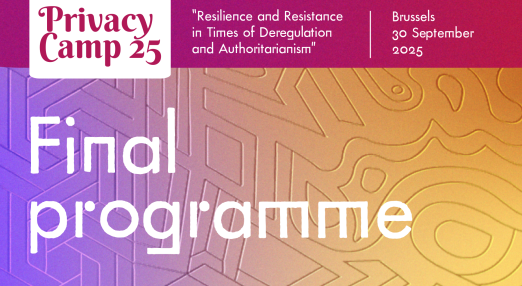
#PrivacyCamp25: The final programme is here
PrivacyCamp25 will take place on 30 September, 2025 online and at La Tricoterie, Brussels. Curious about what we have planned? Check out the final programme.
Read more
-
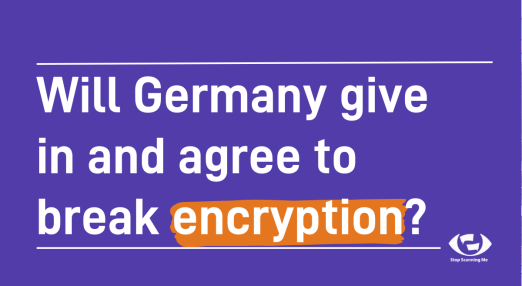
Chat Control: What is actually going on?
In summer 2025, so-called “Chat Control” became a huge topic of public attention. This is because in a major vote planned for 13 or 14 October, EU governments will decide whether to endorse or reject a mass surveillance, encryption-breaking and anonymity-ending law: the EU CSA Regulation. However, there remain many democratic checks-and-balances in the EU lawmaking system that mean we still have a strong chance to stop measures that would amount to Chat Control.
Read more
-

Open Letter: The European Commission and Member States must keep AI Act national implementation on track
EDRi, along with a broad coalition of civil society organisations, demands urgent action from the European Commission and Member States to ensure that the rights enshrined in the AI Act do not remain hollow promises, but that the Commission and Member States act decisively and immediately to ensure the timely national implementation of the AI Act now.
Read more
-
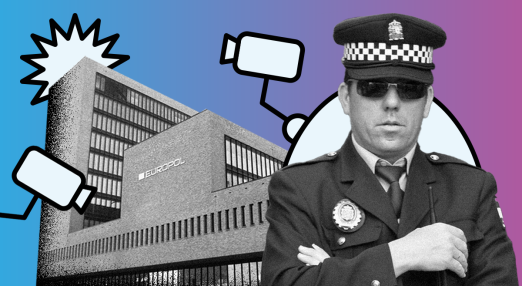
Consultation response to the European Commission’s call for evidence on a new Europol regulation
The European Commission launched a call for evidence to gather views on the reform of Europol’s mandate. Europol is the EU law enforcement cooperation agency. EDRi along with Resist Europol coalition members submitted a response to the consultation, sharing their concerns about this renewed expansion of powers, despite Europol’s numerous issues around opacity and lack of accountability.
Read more
-

EDRi-gram, 17 September 2025
What has the EDRi network been up to over the summer? Find out the latest digital rights news in our bi-weekly newsletter. In this edition: age verification gains traction, EU’s deregulation spree risks entire digital rulebook, & more!
Read more
-

Why Europe’s new tech laws have the world on edge
Trump and the global far-right are trying to discredit Europe’s tech laws with misinformation and political pressure, fearing that these regulations might disrupt their ability to undermine democracy. If Europe wants to safeguard its democracy and its credibility as a global regulatory leader in tech, the European Commission needs to enforce these laws swiftly and decisively.
Read more
-
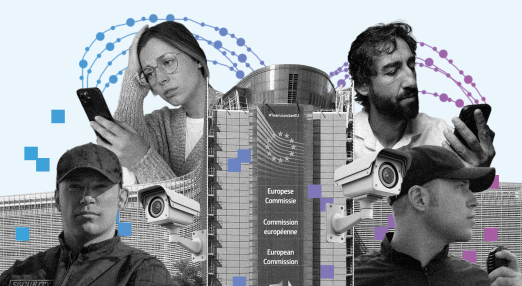
Deregulating digital rights: Why the EU’s war on ‘red tape’ should worry us all
The European Commission has made deregulation a top priority for the EU over the next four years. Under the banner of ‘simplifying’ EU rules, we risk seeing the entire digital rulebook – for which we have advocated for years – being stripped away. If the EU wants a healthy, competitive tech market that puts people at its center, then this deregulation push is not only bad for the protection of fundamental rights, but is also an act of self-sabotage which must be reversed.
Read more
-
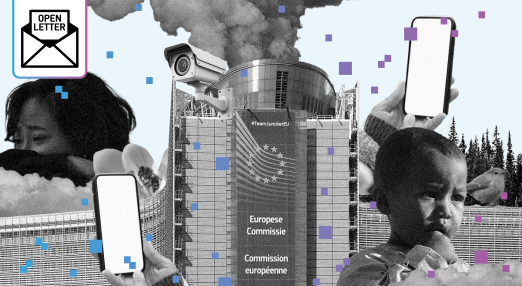
Open Letter: The EU weakens the rules that safeguard people and the environment
470 civil society society organisations, trade unions and public interest groups are making it clear to European Commission President Ursula von der Leyen, European Commissioners and EU Member States that our rights, planet, health and justice are not for sale. They call on EU lawmakers to protect and promote the rights enshrined in the EU Charter and international human rights law, instead of endangering them.
Read more
-
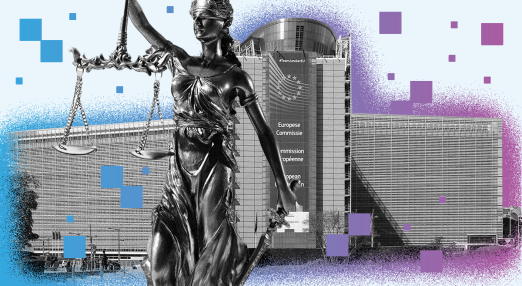
EDRi warns against GDPR ‘simplification’ at EU Commission dialogue
On 16 July 2025, EDRi participated in the European Commission’s GDPR Implementation Dialogue. We defended the GDPR as a cornerstone of the EU’s digital rulebook and opposed further attempts to weaken it under the banner of ‘simplification’. The discussion was more divided than the official summary suggests.
Read more
-

Age verification gains traction: the EU risks failing to address the root causes of online harm
Narratives around age verification and restriction of access for minors are gaining traction in the EU, amid similar efforts being pursued in the UK, US and Australia. This blog analyses different EU policy files and warns that relying on age-gating risks undermining more holistic, rights-respecting and effective solutions to online harm.
Read more
